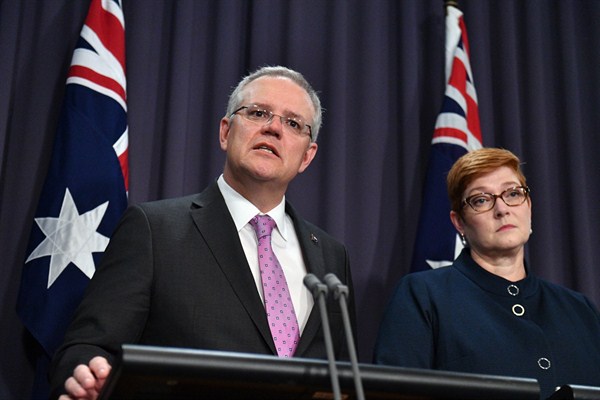In a much-anticipated speech in Sydney last Saturday, Australian Prime Minister Scott Morrison announced that his government would recognize West Jerusalem as Israel’s capital. Morrison sought to mollify critics by delaying an embassy move from Tel Aviv until a final peace settlement is reached and holding out the possibility of recognizing a future Palestinian state with East Jerusalem as its capital. Still, the announcement provoked stern reactions from Australia’s Muslim-majority neighbors, including Indonesia and Malaysia. In an interview with WPR, Ran Porat, a researcher and lecturer at the Australian Center for Jewish Civilization at Monash University in Melbourne, discusses the political calculus behind Morrison’s policy shift and its implications for Australia’s relations with the Islamic world.
World Politics Review: Why is the Australian government now officially recognizing West Jerusalem as the capital of Israel?
Ran Porat: While internal political considerations played a role, Australia recalculated its position mainly because of changing geopolitical circumstances. It has now been a year since President Donald Trump fulfilled a promise made by many previous U.S. presidents by recognizing Jerusalem as Israel’s capital and moving the American Embassy from Tel Aviv to Jerusalem. Guatemala and Paraguay soon followed course—although Paraguay later reversed its decision—and six more countries have announced they will move their embassies to Jerusalem soon.

